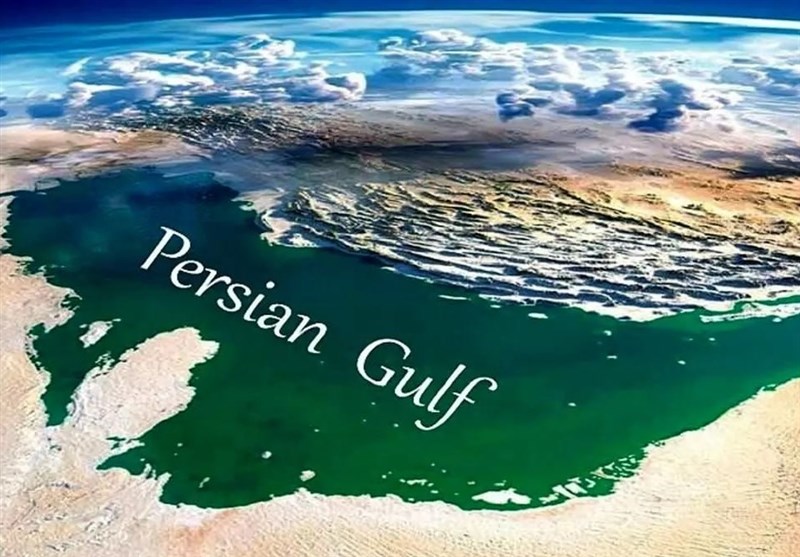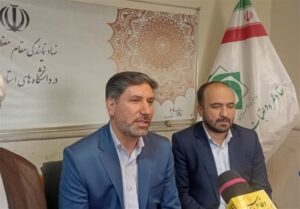According to the Tasnim News Agency, Shu’ib Bahman, an international relations expert and researcher of the Eurasia field At the meeting “We and the West, the shadow of British colonialism over the Middle East and Iran” held at the Islamic Revolution’s Cultural Research Institute, Concerning the British role in the geopolitical siege of Iran in the last 200 years, the British intervention in the geographical environment of Iran is actually starting with the establishment of the East India Company, and from now on the British, whether in the subcontinent, the Persian Gulf, the West Asian and Caucasus and Caucasus.
Bahman said that since then, we can identify three major components in the field of geopolitical change, adding: “First, the direct interventions of the British are doing inside Iran.” The next time is an attempt to restore the design of environmental maps or areas around Iran, and the third step is in fact an approach that takes place in Persianization and de -Iranians from neighboring areas of Iran, for all, there is a very serious historical evidence.
Direct interventions; The first stage of English interventions in Iran
Eurasia researcher on the first place in British interventions in Iran, direct interventions in Iran, said: “One area of this sector relates to the termination of Iran and is very famous. Like various contracts, including the Paris Treaty, the Goldsmith Line, or even the issue of Bahrain’s separation from Iran, which is meant by Herat, Sistan, Baluchistan, and important parts of Iran through the active and direct role that the British play. Or even the indirect role of Britain in the division of Iran’s land, which is quite evident in the two contracts of Golestan and Turkmanchai.
He continued: “For example, in the Golestan deal, it was in the way that they did not provide military support under the 1809 contract and actually defeated the Iranian forces.”
Bahman pointed out that in Turkmanchai, they also interfered with the re -war and the mediator they wrote for the Russians and wrote the text of the contract in favor of the Russians. All of this has been effective in the division of Iran, and in its kind, it has a significant impact on Iran’s interior environment, and we experience their geopolitical pressures to this day, in the geographical, security and political areas, and even our national mental memory, which continues.
He said: In other areas, such as contracts imposed on Iran, such as the 1809 contract that practically forced Iran to unite against France and Russia, without having a significant support for Iran, or the 1919 contract that pursued Iran’s division and territorial division of Iran in the long run, all of this. At the same time, in the political interventions, and especially in the two coups that took place in Iran, the British role cannot be concealed; Whether in the 1299 coup that led to Reza Khan, as well as the coup d’état of August 28, 1332, which weakened political and national independence in Iran, it had significant geopolitical and geographical effects.
Bahman added, however, in the field of Iranian natural resources control, the British behavior has been such that it has also caused significant damage and challenges in the geopolitical and geographical areas of Iran. Whether the Darcy contract that delegates oil exploration and extraction privileges or the discussion of Iranian oil revenues until the nationalization of the oil industry, they all have significant geographical and geopolitical impacts on Iranian policies and have faced serious challenges in Iran. So a British influence area was essentially Iran’s interior environment, which tried to pursue their geopolitical policies through territorial breakdowns, imposed contracts, coups and political interventions, and natural resource control.
Interference in the peripheral areas of Iran; The second stage of English destructive interventions
Bahman said about the second area of British interventions in Iran: “This area is related to the neighboring and peripheral areas of Iran, where the British footprint and the role of the British in regional designs, both historically and in the present, are quite clear.
He said: However, the discussion of controlling the subcontinent and the separation of Baluchistan and Herat from Iran has been an important issue that has had a huge impact to date on the adjacent environment of Iran on the eastern borders of our country. Or on the western borders, the role of the British in the Sykespico agreement, which has to date, is undeniable for the West Asian region. Especially by overshadowing Iraq, Jordan and Palestine, which later leads to the creation of the Zionist regime, and the direct role that the British played and its effects and consequences can still be seen today in the periphery and geographical environment of Iran.
Bahman added: In southern Iran, the British also made efforts to establish and establish the Persian Gulf Sheikhs and the emergence of the UAE, Qatar and Bahrain, which is one of the important issues that has to date the geopolitical effects on Iran’s geographical space. Alongside these issues such as the establishment of military bases in the region have always been important, or the British support for the formation of the Gulf Cooperation Council and their role in this regard. All of this to date has somehow influenced Iran’s geopolitical environment. So the second component to be mentioned here is the design of neighboring and peripheral environments of Iran, which we see in the east, west, south and north and the Caucasus area.
Persianization and Iran Detribution in the region; The third step of English interventions
Eurasia expert, referring to the third British interventions in Iran, the Persian and Iranian detention debate, which the British began in the region, said: “The British in promoting Arabic identity and for the first time they called the Persian Gulf the Arabian Gulf, and then it was used as a concept. Also efforts to weaken Iran’s cultural links with the adjacent environment; With the Arab countries, Afghanistan, Pakistan, India, and so on, promoting anti -Iranian culture in the countries and areas that were supported by their own. And, of course, there are serious historical signs and documents for all of them.
What do the British want from Iran?
Bahman noted: The British, with these three approaches to Iran throughout history, sought to preserve their colonial interests in India, seeking control of resources and business routes at times, seeking to contain their regional and international competitors such as Russia – in the era of a great game or a great competition – Anti -international interests themselves, in various ways, and in different ways, they try to prevent this regional power or become Iran into regional power.
He added: “For this reason, apart from all the projects that exist in the field of segregation, or in the field of tribal stimulation within Iran, the plans that divide Iran into 7 or 8 parts.” In addition to all of this, they also pursue a metropolis in the peripheral areas whose name can be named the same geopolitical suffocation of Iran. Why? Because we see the British footprint in all these important projects around Iran.
Grieving Iran’s geopolitical by constructing corridors in the north, south, west and east
“Today, almost 5 metropolitan projects are being formed in the peripheral environment of Iran,” said an international relations expert, “an international relations expert again emphasized the existence of a new British project in the neighboring areas of Iran.
Bahman added: In eastern Iran, a corridor designed by the Lajevard Corridor, which is set to reach Turkmenistan and Bakistan via the Caspian and Baku Sea and turn to Turkey, while looking at the map, we see that Afghanistan and Pakistan are closest to Iran, not a route from above; Talk about a rail, road and sea combination route, and take a longer route and then reach Turkey and from there to Europe.
He pointed to the creation of another corridor in southern Iran and added: Amec Corridor In the southern Iran, it is to connect India through the southern Gulf states to the occupied Palestinian territories and from there to the Mediterranean and European Sea. It is a corridor that virtually evacuates Iran’s strategic capacities in the Persian Gulf.
This professor and researcher noted: In western Iran, too Corridor Development It is to connect the port of Faw Iraq to Türkiye and then to Europe. This route actually makes the north -southern Iranian corridor.
According to Bahman, in northern Iran there are also discussions related to The fake corridor of the bell Or the most correct term of that same Turani NATO corridor That is, the northern Iranian routes, especially the western eastern routes of Iran, are virtually unnecessary and out of geopolitical competition.
He noted: Along with these four corridors designed in the peripheral and geographical areas of Iran and the role of the British in all of them, an Israeli corridor, which has been very noisy in recent months, has been named after the name. David CorridorThe corridor is also set to south of Syria -and the same developments we are seeing in Sweden Syria and the discussion of the Dorouzi -to east of the Euphrates, the Kurdish areas of Syria and then to the Kurdish climate of Iraq, Turkey, and then to the Zanghehor Corridor. This is also actually targeted by the heart of the resistance and the resistance member states and seeks to decompose and disintegrate this geographical resistance.
When we put all this together, a large image is formed for us that, along with all those territorial decomposition designs and ethnic interventions, are deliberately and deliberately evacuated by Iran’s geopolitical capacities, and our country suffer from a geopolitical suffocation that is all in English.
Occupy Iranian Triple Islands; The next English project
The important point that seems to be the next British project after our bellfish and our poor reaction to this important event, in line with the geopolitical suffocation and geopolitical changes that are discussed in many western media and thoughts today, and the recent and different statement of the Gulf Cooperation Council. Discussion Is. That is, the same Persian and Iranian de -ration process, which began in the Persian Gulf decades ago, is likely to be pursued in the future with the highlight of the occupation of the three islands, and the possibility of even trying to remove these islands in the first step and in the first stages of re -invading Iran is very important, and we are very serious. As if these thinkers had previously raised the issue of attacking Evin Prison, for example, all the recommendations they had made in this 12 -day war.
He added: “Right now, the discussion of the occupation of the three islands is seriously, which must be alert to it anyway.” Overall, it may be said that the British have hit Iran more than any other country in history and have created geopolitical restrictions on Iran.
British cultural influence on textbook content and cinematic production
Finally, Bahman, regretted that there is still an English view of our country’s official historiography and we still failed to change the process of official Iranian historiography, saying: “Of course, I have no information about the content of the textbooks in the last three to four years, but in the previous years, the textbooks were still in English. For example, he said Sir Robert Flan. Well, what is it that Mr. Sir Robert Flan, who came here, has looted the colonial contract and looted our sources, we still say to him: Sir (High) has come here and did it?!
He continued: “This shows that we do not pay attention to these areas at all and we are far behind in our official historiography and we must pay attention to it.” There is this backwardness in the cultural fields. For example, even during the years after the revolution (I am researching), only one series has been made to engage in the role of England, and that is the English bag. The rest of our products that our sound and cinema have all were anti -Russian, and this is very strange.
Bahman reiterated: I did a serious research on this issue; On the subject of historical content in cinema and serials made in Iran after the revolution, it is strange that influence is so high that we still have influence in our official historiography and do not allow these titles to change. Or in the cultural and cinema fields, we still do not dare to make two works on the actions it did, especially in the geopolitical field – and more than any other country! We still do not go to what are in fact our weaknesses, and we hope that in the future, at least by holding such conferences, these will be resolved and we will find a new direction.
End of message/
منبع:تسنیم







